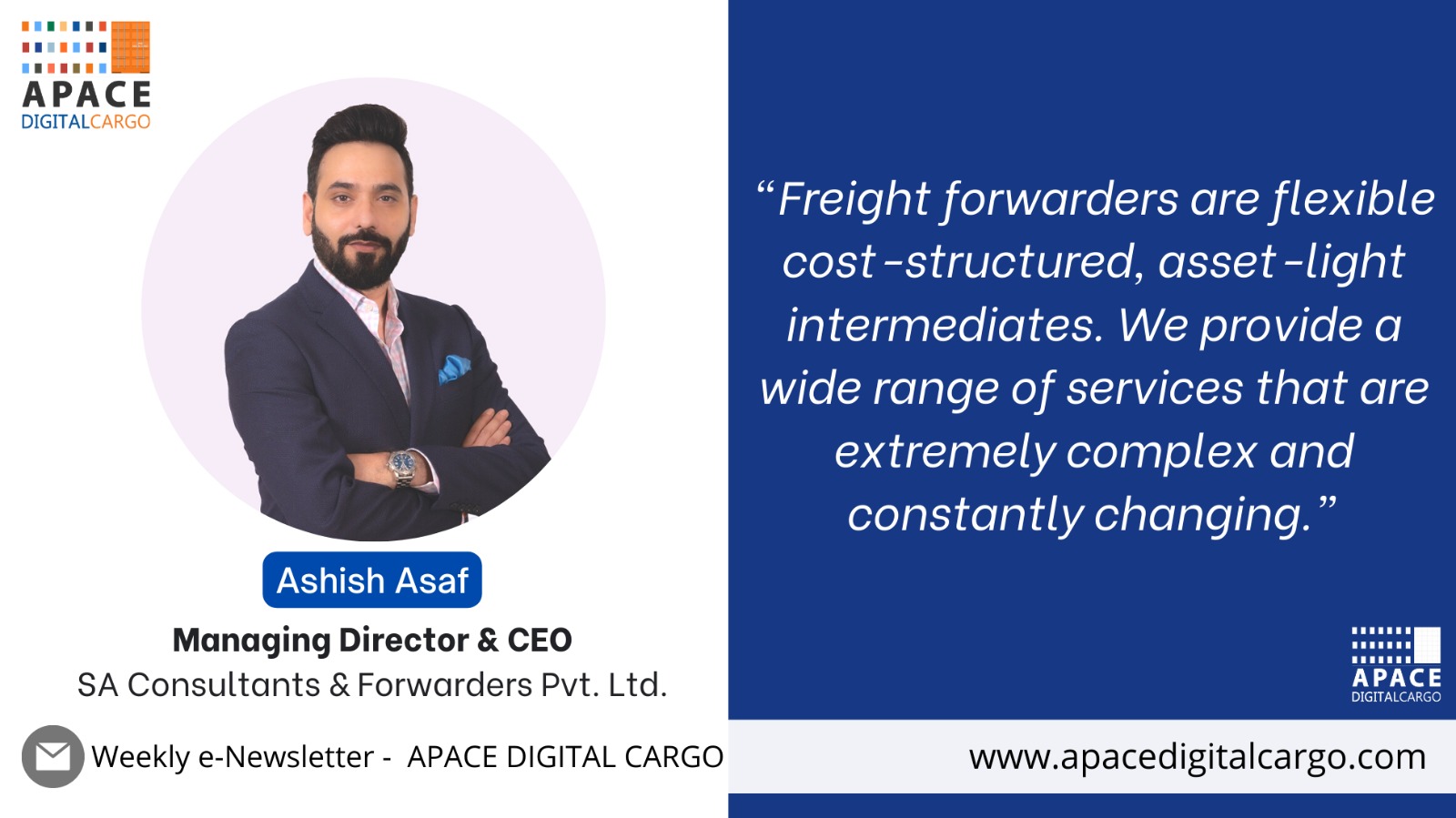
In the empire of freight forwarding, SA Group stands as a beacon of innovation and reliability, consistently setting benchmarks for the industry. As India’s premier neutral wholesale freight forwarder, SA Group has solidified its position among the top 5 IATA Indian freight forwarders. With a great track record and creative leadership at its core, SA Group has reinvented the parameters of logistics, bringing out inventive solutions to the difficulties of today’s linked global marketplaces. In this interview with Ashish Asaf, Group Managing Director & CEO, S.A. Consultants & Forwarders, we delve into the market strategy that has propelled SA Group to the forefront of the freight forwarding landscape.
- What is SA Group’s market strategy in India, and how does it differentiate itself from competitors?
We position ourselves as India’s leading neutral wholesale freight forwarder. We believe in growing together and aim to empower emerging airfreight forwarders by proposing competitive prices and pan-India presence. This would possibly help developing innovative business models that will improve customer experience and operational efficiencies.
Neutrality means giving other emerging forwarders a chance at market share. We provide services exclusively to freight forwarders, custom brokers, courier agents and food product exporters. By maintaining zero interest in value unit (cargo) we aim to protect our customers’ business and not compete against them. Moreover, with zero interest on the value unit, we are giving access to great rates and services and no risk of ‘back selling’ which means we are not a threat to any freight forwarder.
2. How does SA Group view the competitive environment in India’s freight forwarding industry, and what measures does it take to stay ahead of the competition?
Freight forwarders are flexible cost-structured, asset-light intermediates. We provide a wide range of services that are extremely complex and constantly changing.
The one thing, in my opinion, that should be commended is that when times were tough, forwarders came up with adaptable strategies to successfully serve the clients in the best way possible. Second, as was already indicated, we operate on an asset-light approach, which allows forwarders to quickly adapt to or change with the times. Therefore, one might say that conventional companies are concerned about progress, but forwarders will undoubtedly be able to adapt to the needs of the moment given their nature.
3. How is SA Group adopting digitalisation in its operations and what benefits has it brought to the company?
As a company, we have implemented robust digitized systems to stay connected with the industry stakeholders, be it custodians, airlines, airports, customs, etc. Our systems are robust enough to give opportunities to emerging freight forwarders to come on board, grow together and build innovative solutions. We’re constantly upgrading our digital system to adopt a cloud-based integrated infrastructure.
4. What are your personal insights on the emerging trends and developments that will have a profound impact on the air cargo sector?
Our country’s air cargo sector is in a good position to grow because of its well-developed airport cargo infrastructure, digital cargo handling system, and airport gateways that make it easy to access international markets. What needs to be done is if system glitches can be removed with simpler procedures, screening cargo handling machines at the ground handlers should be maintained.
India is being eyed as the upcoming center for industrial exports. I firmly believe that we now possess enough infrastructure and surplus carrying capacity; what is required is to encourage the manufacturing of high-end items, which predominantly move by air. India will eventually need more air freight capacity as manufacturing expands at an unprecedented rate.





